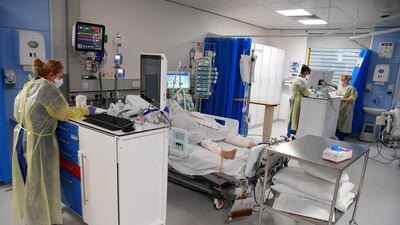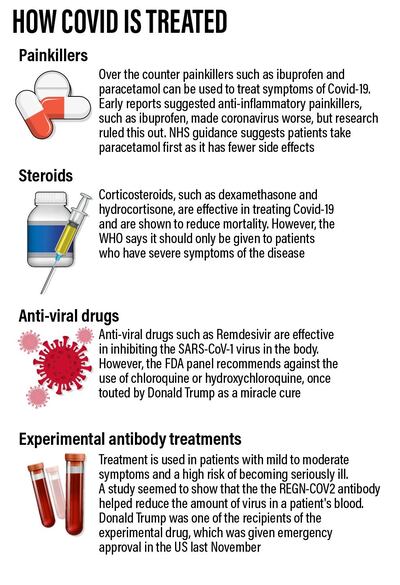A treatment for patients infected with Covid-19 could keep millions of people out of hospital, researchers found.
The antiviral properties of the drug, called thapsigargin, or TG, have proved highly effective in battling coronavirus in clinical trials on animals and in human cells.
Prof Kin-Chow Chang, of Nottingham University, where the research was carried out, said the compound drug could have significant implications in the defence against this and any "next Disease X" pandemic.
Prof Chang said it had already been shown to be highly effective against the three most important human respiratory viruses –Sars-CoV-2, respiratory syncytial virus and influenza A – and the common cold.
He called for funding and political backing for the new drug.
“The whole beauty of TG is that if you can catch Covid early, everything is a lot simpler downstream," Prof Chang said.
“You don't develop a serious illness and you stop the spread of Covid in its tracks.”
Given that acute respiratory infections caused by different viruses are clinically indistinguishable at first, an effective broad-spectrum drug that can fight different virus types at the same time could significantly improve clinical management and control active infection and its spread.
The research team discovered recently that TG can make cells highly resistant to infection by starting responses that disrupt the reproduction cycle of viruses, such as Covid-19, in several places at the same time.
TG is able to fight off invading viruses by using their own innate defences against them.
It is described as a “host-centred antiviral”, as opposed to conventional antiviral drugs that directly target viruses, which can even be adopted in a "one health" approach to control human and animal viruses.
If approved, possibly by the end of this year, it would enable doctors to prescribe treatment at home for people suffering from Covid-19.
Those infected with the coronavirus are able to use only paracetamol or other over-the-counter drugs to treat the illness unless they become unwell enough to be taken to hospital.
There, they might be given remdesivir, the only licensed anti-viral drug used to treat seriously ill Covid-19 patients.
In its report published on Wednesday, the Nottingham research team said TG was “several hundred-fold more inhibitory than remdesivir”.
"If you're suffering from Covid at home in quarantine and you're developing increasingly severe symptoms, you will not be treated until you're really so sick so that you have to be hospitalised," Prof Chang told The National.
"By then it might be too late and that’s a tragedy. But if you have an antiviral that can work early on, it will save a lot of lives and lots of resources.”
If TG's potential is proved in human trials, which could begin within weeks, laboratory testing for Covid-19 might not be required.
A compound drug with the ability to combat several viruses makes a definitive diagnosis in the laboratory unnecessary as to which infection a patient is suffering from, Prof Chang said.
"You can be treated right away,” he said. “You then circumvent a lot of the downstream Covid complications and you basically control the spread of the virus, so you can imagine just how advantageous it could be.”
The researchers concluded that the antiviral would be effective in tandem with vaccines and could plug the gap when inoculation did not work.
“Even when you have the vaccines fully deployed, there will still be cases of active infection because you've missed some and it's not 100 per cent effective anyway,” Prof Chang said.
“If you can mop it up with an antiviral, so much the better.”
Making TG is understood not to be expensive.
It has been around for several decades as a plant-derived compound for laboratory research into cellular processes, and has been tested as an antiviral in prostate cancer.
The study, published in Viruses, is a collaborative project led by Prof Chang and colleagues at the UK's Animal and Plant Health Agency, China Agricultural University and the Pirbright Institute.



